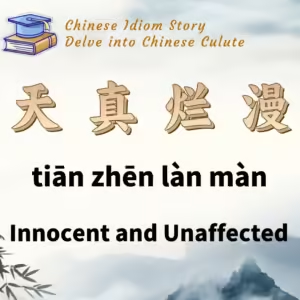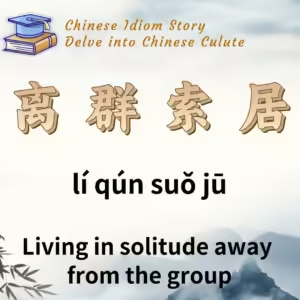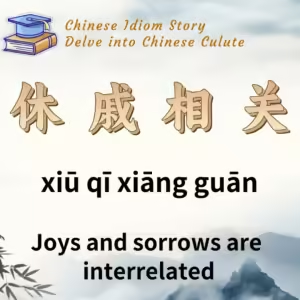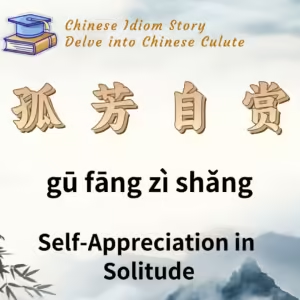
Chinese Idiom: 耿耿于怀 (Geng Geng Yu Huai)
English Translation: Lingering in One’s Heart
pīn yīn: gěng gěng yú huái
Idiom Meaning: This idiom describes a state of being preoccupied with a matter, unable to forget or let it go. “耿耿” signifies an unsettled heart, while “于怀” means in the heart or mind.
Historical Source: The idiom originates from the Book of Songs (《诗经 · 邯风 · 柏舟》).
Idiom Story:
This particular poem expresses the frustrations and sorrows of women in their domestic lives. It consists of five stanzas:
- The first stanza conveys feelings of solitude and a lack of companionship.
- The second stanza highlights a sense of frustration with no outlet to express their pain.
- The third stanza declares a refusal to be subjugated.
- The fourth stanza describes suffering from the slanders of petty individuals.
- The fifth stanza reveals a deep sorrow over their inability to escape their predicament.
The opening lines of the poem are:
“泛彼柏舟,亦泛其流。耿耿不寐,如有隐忧。”
Translation:
“Floating on the heavy cypress boat, drifting with the current.
Wide awake, burdened with deep worries.”
In this context, the poet likens her troubles to a heavy cypress boat that floats aimlessly in the water. She expresses her sleeplessness, indicating that her heart is weighed down by persistent worries. It is not due to a lack of wine or leisure activities that she cannot find solace; rather, her sorrows are profound and cannot be dispelled.
From the lines “耿耿不寐,如有隐忧” (Lingering awake, as if burdened with worries), the idiom “耿耿于怀” emerged, symbolizing the unresolved feelings and thoughts that weigh heavily on one’s heart and mind.






